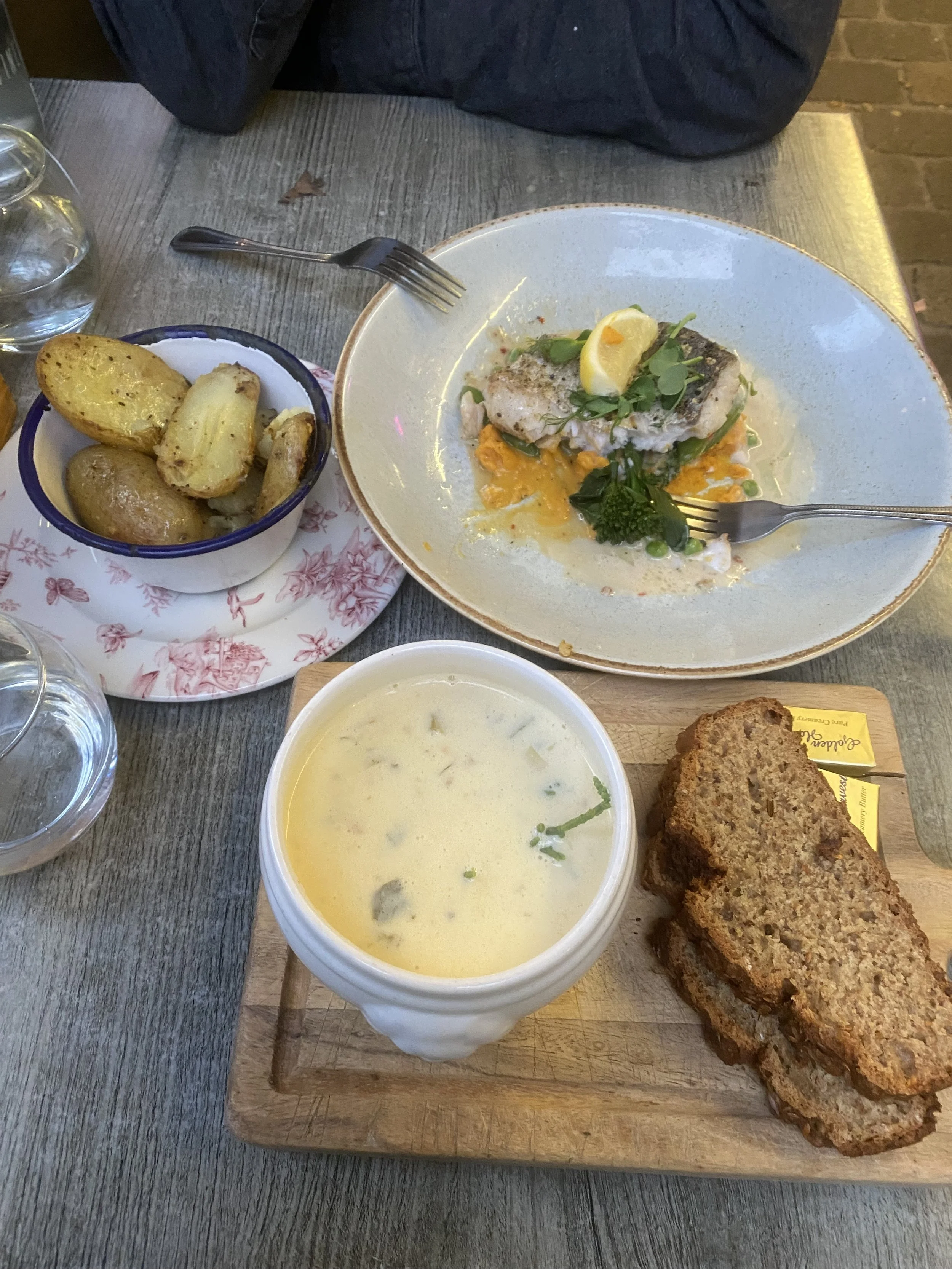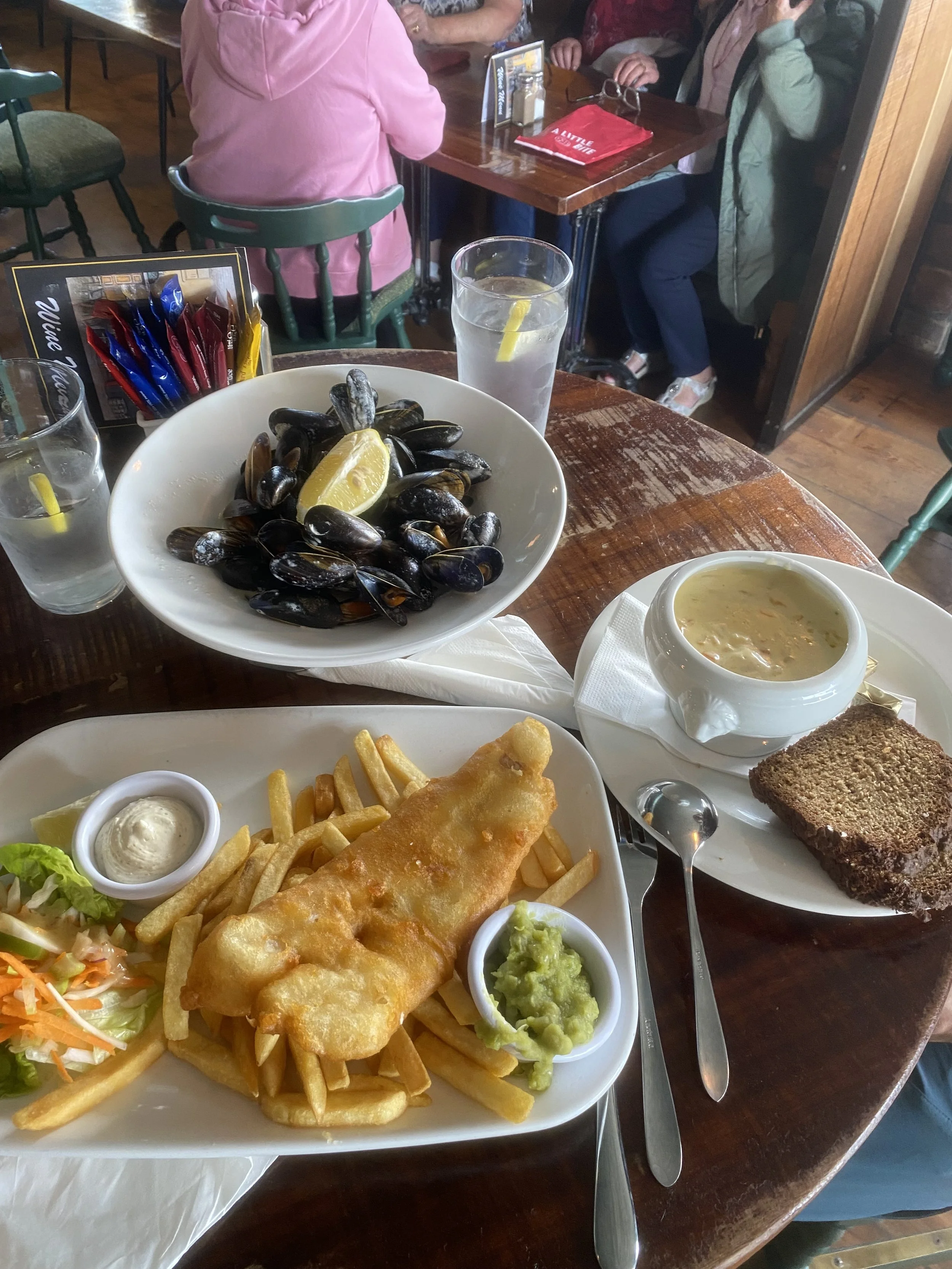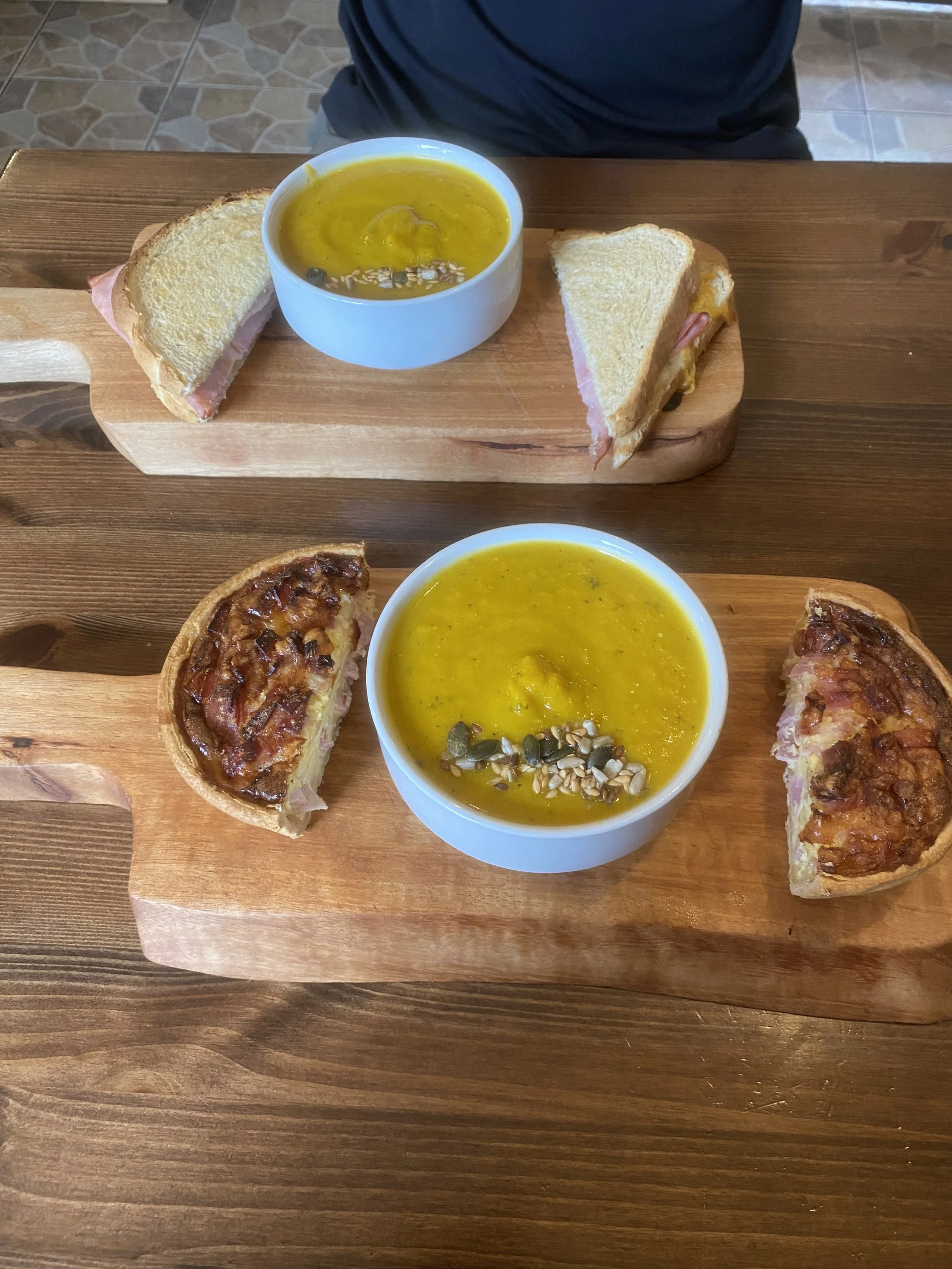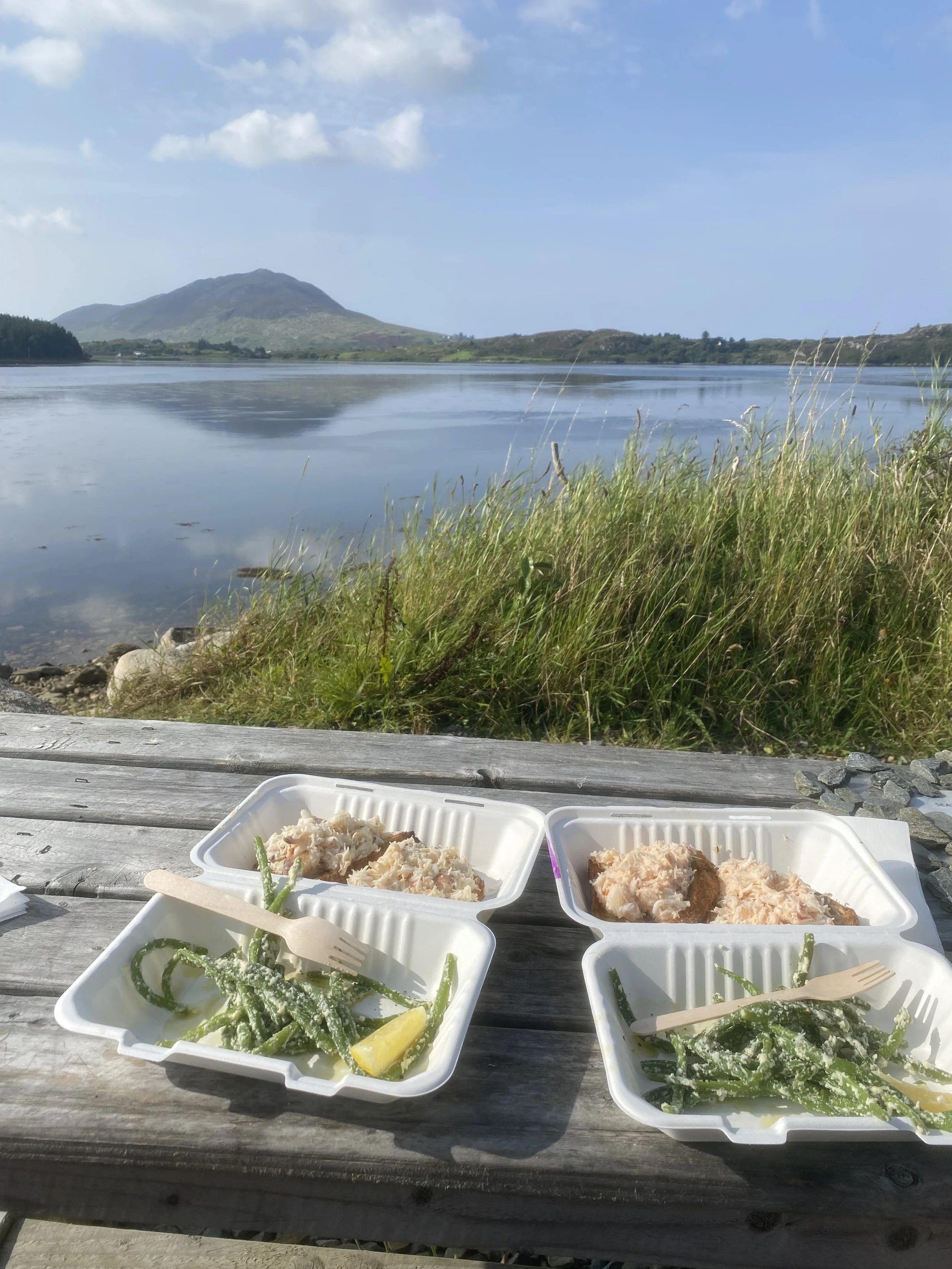How to Eat Well on Vacation Without Stressing Out (Hormone-Friendly Tips from a Dietitian)
Vacations are meant for rest, fun, and a break from your usual routine—but if you’ve ever come home from a trip feeling bloated, sluggish, or completely “off” with your eating habits, you’re not alone.
A common struggle I hear from my clients? Eating on vacation in a way that feels good, without falling into the all-or-nothing trap. Either they spend the whole trip hyper-controlling every bite (which is exhausting and can take away from the experience), or they throw all their habits out the window and come home feeling like they have to “start over.”
The truth is, eating well on vacation doesn’t have to mean perfectly. You can support your hormone health, energy, and digestion while still enjoying all the food and experiences that make travel special.
I just got back from a trip to Ireland 🇮🇪, and while plenty of what and when we ate was out of my control, there were still a few things I could control. And those little choices made all the difference.
Why Eating Well on Vacation Matters for Hormone Health
Your hormones are influenced by so many factors: blood sugar balance, nutrient intake, stress levels, and digestion. Vacations often bring big shifts in:
Meal timing (longer gaps between meals or late-night eating)
Food availability (more restaurant or processed foods)
Activity levels (either more walking than usual or more sitting and relaxing)
These changes aren’t “bad”—but they can make you feel more tired, bloated, or moody if you don’t have strategies in place. For example:
Skipping protein early in the day can lead to blood sugar crashes (and sugar cravings) later.
Going days without enough fiber can slow digestion and cause bloating and constipation.
Forgetting to hydrate can leave you with low energy and headaches.
The goal is to protect your energy and hormone balance enough so you feel good during and after your trip, without obsessing over every choice.
My Go-To Vacation Eating Tips
Here’s what worked for me in Ireland and what I often recommend to clients:
1. Start the Day with Protein
Breakfast sets the tone for your blood sugar, appetite, and cravings for the rest of the day. On my trip, I looked for eggs, Greek yogurt, and smoked salmon.
2. Sneak in Veggies Where You Can
Travel meals can be heavier on bread, pasta, and fried foods. I made it a goal to get some form of veggies at least twice a day—whether that was raw bell pepper slices, sautéed greens, or veggie soup.
3. Pack “Just in Case” Snacks
Delays, long tours, or rural stops can mean hours without food. I packed nuts, apples, beef sticks, and protein bars so I could keep my energy steady until the next meal.
4. Stay Hydrated
Plane travel, salty foods, and alcohol can all be dehydrating. I carried a refillable water bottle and filled up as much as possible. I also used electrolyte powders most days!
5. Enjoy the Local Food (Without Guilt)
Part of travel is enjoying cultural and regional specialties. I had my fair share of Irish brown bread, fish and chips, and seafood chowder, but I paired them with habits that made me feel good overall. Pics below!
The Power of Talking It Through
When I work with clients, we often talk about how to adapt their habits to different situations—vacations, holidays, busy work travel—so that they feel confident instead of anxious about food. Sometimes just having someone walk you through what’s realistically in your control makes a huge difference.
Because the point isn’t to come home feeling like you need another vacation to “get back on track.” It’s to feel nourished, energized, and ready to settle back into your usual rhythm without guilt or discomfort.
Final Thoughts
Eating well on vacation isn’t about perfection—it’s about having a few flexible habits in your back pocket so you can enjoy your trip while still supporting your body and hormones.
If you’re planning travel and want help creating a personalized, hormone-friendly eating plan for your trip, I’d love to work with you. You can learn more about my nutrition coaching for hormone health here.





